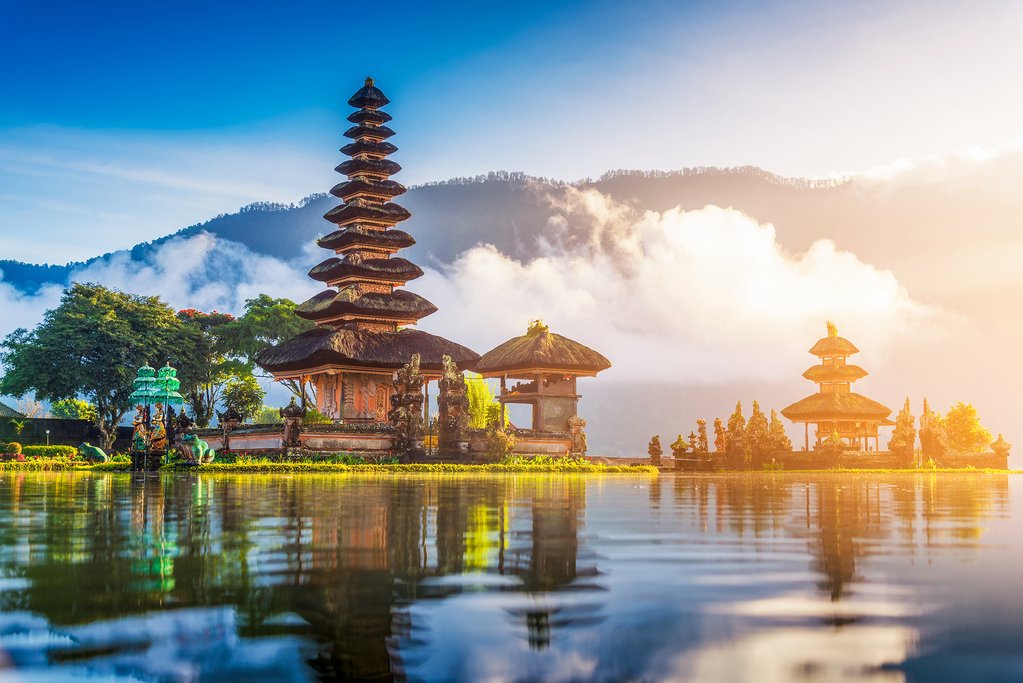These are sector overviews that we and the Department for International Trade have made for British companies who are looking to learn more about Indonesia. Information within these guidelines includes looking forward into future and past development in these specific sectors. These guidelines could come in very useful for business’ in these sectors or looking to expand foreign businesses into Indonesia’s progressing markets.
Available for the following sectors:
- Airport
- Animal Nutrition
- Construction
- Education
- Electric Vehicle
- Healthcare
- Oil & Gas
- Railways
- Renewable Energy
- Toy and Game
To obtain a copy of the sector overview, contact us at businesscentre@britcham.or.id.
Tourism
Indonesia’s Tourism and Creative Economy Sectors Post-Covid Recovery
Created on 6th September 2022
Tourism is a business that improves people’s well-being via a creative economy, which drives economic growth and employment creation. Different creative businesses are required in each tourist location to suit numerous tourism demands so that tourists feel comfortable and satisfied when visiting these tourist attractions. Tourists’ demands will generate and stimulate the creation of products and services, as well as motivate local communities to satisfy those demands for housing, transportation, restaurants, souvenirs, massages, laundry service, hairdressers, and other services. The correlation between tourism and creative economy sectors made the President of Indonesia, Joko Widodo merge the Ministry of Tourism and Creative Economy Agency into the Ministry of Tourism and Creative Economy in 2019. This matter would provide comprehensive coordination within the ministry to build a creative business by adjusting the growing demand from tourists. Thus, it would attract new visitors and would likely improve the growth of the national economy.
The natural beauty of Indonesia’s landscape made the tourism industry grow significantly in the past year before Covid-19 struck. In 2019, Indonesia recorded 16,106,954 foreign tourists visiting which was an all-time high. At that time, the tourism industry contributed around 4,9% of the national GDP, with foreign exchange revenue of Rp. 239,24 trillion and absorbed 14,96 million workers. According to the Central Agency of Statistics (2022), the number of foreign tourists visiting Indonesia since 1999 continued to show growth. However, the outbreak of the Covid-19 pandemic has decreased not only the number of foreign tourists visiting but also the room occupancy nationwide. Throughout 2020, it only reached 4,05 million visits. Meanwhile, in 2021, it was only recorded at 1,56 million visits.
Nevertheless, the situation is recovering in 2022. Minister of Tourism and Creative Economy of the Republic of Indonesia, Sandiaga Uno, is optimistic that the tourism sector will rise and become more enthusiastic this year. Seeing the increasing number of foreign tourist visits from January-May reached 397,770 visits or grew 616,40%, he believes that it could reach 1.8 million to 3.6 million visits by 2022. In fact, Indonesia has held several international events this year to boost its tourism sector namely MotoGP in Mandalika, Formula E in Jakarta, GPDRR in Bali and more to come such as G20 Conference, World Conference on Creative Economy (WCCE), World Tourism Day.
Another great news is that Indonesia's hospitality business conditions have improved but not yet at a stable level, according to the Indonesian Hotels and Restaurants Association (PHRI). Hotel room occupancy rates increased significantly in May-July due to the long Eid holiday and school holidays. PHRI believes the average hotel room occupancy nationally can grow by 5% by the end of the year. Julien Naouri, Vice President, Investment Sales Hotels & Hospitality Group, JLL Asia Pacific, supported the statement by highlighting the hotel industry in Indonesia is heading for recovery with increasing occupancy and revenue per room available.
In regards to rebuilding its tourism sector, hand in hand with the Ministry of Investment, the Ministry of Tourism and Creative Economy aims to target investment in the tourism sector to reach Rp 92,93 trillion in 2024. This figure is equivalent to 7,5% of the total national investment target in 2024 which is Rp 1,239 trillion. Both institutions also established the Investment Acceleration Task Force to attract local and foreign investors to invest in the tourism sector and the domestic creative economy.
The Ministry of Trade stated that the creative industry has been one of the most successful sectors in Indonesia since 2002. The creative industry (SME business) only needs the Business Identification Number (NIB) which functions as legality, Indonesian National Standard (SNI), and Guarantee of Halal Product Certification (SJPH) for products that must meet SNI and halal qualification. There are 17 subsectors of Indonesia’s creative economy that are open for investment, such as (1) advertising, (2) application, (3) architecture, (4) art, (5) craft, (6) culinary, (7) design interior, (8) fashion, (9) game developer, (10) movies, animations and videos, (11) music, (12) performing arts, (13) photography, (14) product design, (15) publishing, (16) television and radio, (17) visual communication design. In recent years, culinary, fashion and crafts are the ones that dominated the creative economy industry.
Besides that, the Ministry of Investment has made all necessary efforts to speed up administrative procedures by ensuring license certainty, ease of access, transparency, and timeliness by allowing more investors to join in the country's growth. The government developed a list of prioritized sectors which include the tourism sector. Investors who make investments in key industries will be eligible for tax breaks such as tax holidays, allowances, import duty exemptions, ease of obtaining company licenses, labor permits, supporting infrastructure, and assured energy supply or raw materials.
It is worth noting that the government granted 100% foreign ownership to anyone opening bars, cafes, restaurants, and sports facilities in the country. Bali, a tourist hotspot in Indonesia, receives foreign investment heavily in the aforementioned areas. Both accommodation and culinary businesses develop fast nearly everywhere in Bali as profits keep generated from tourists. Global brands such as Aman Resorts, Bvlgari Resorts, Kempinski Hotels, Marriott International and Potato Head have been around and thriving as the tourism sector in the region improves every year.
In 2021, the tourism and creative economy sectors have provided the most employment opportunities for 34 million workers in Indonesia. Thus, the sectors have huge potential for foreign investors not only to earn profits but also to prosper the Indonesian society. We suggest that now may be a good time to invest in the industry in order to ride the wave of the recovery.
For more in-depth sector report in the tourism industry, send your inquiry to businesscentre@britcham.or.id.

































